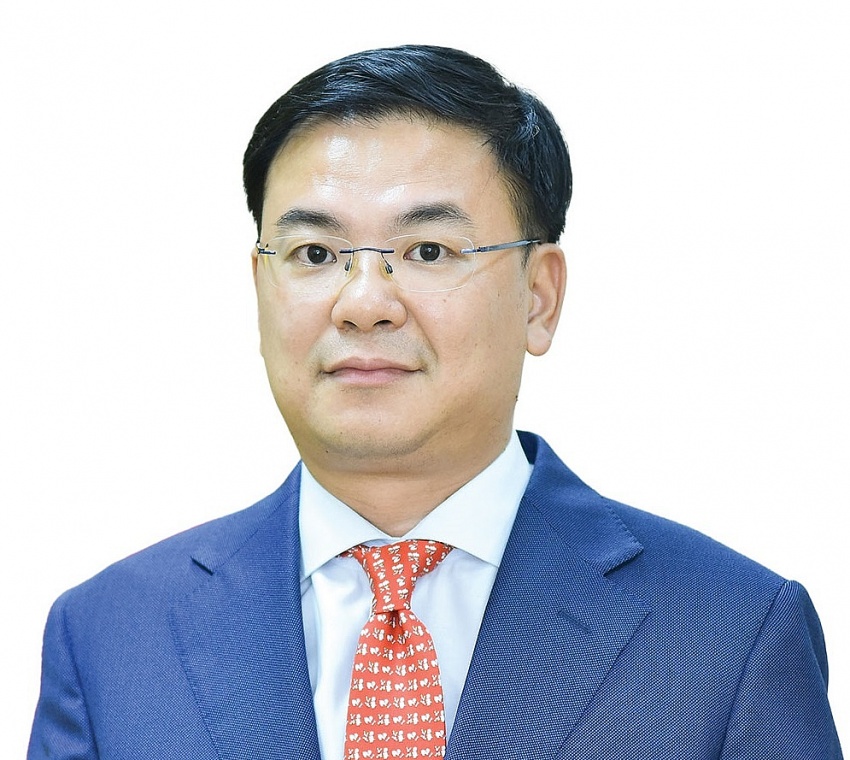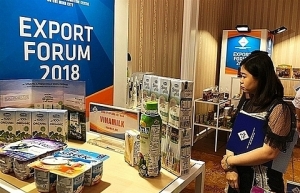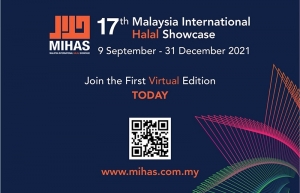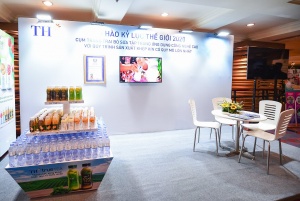MoFA accelerating efforts in promoting the halal industry
An initiative on strengthening international cooperation to develop the Vietnamese halal industry for this decade was issued in February. How important is this decision?
 |
| Deputy Minister of Foreign Affairs Pham Quang Hieu |
The prime minister enacted a decision adopting this scheme, which has over the past two years been hosted by the Ministry of Foreign Affairs (MoFA) in coordination with many other relevant ministries and agencies, and also under consultancy with many domestic and international experts, and overseas Vietnamese representative offices, as well as with businesses and localities nationwide.
This is the first project that has set out major and national orientations on mobilising international resources to build and develop Vietnam’s halal industry in a systematic and professional manner. It helps Vietnamese businesses to effectively join the global halal product supply and production chains.
The project will create a new direction in carrying out economic diplomatic activities for development, helping to usher in a potential halal market with a size of $10 trillion throughout the globe by 2028. This will generate more momentum for Vietnam’s socioeconomic development, especially given our traditional markets are facing high inflation and a potential economic downturn.
In that context, diversifying export markets and opening up new markets are regarded as an effective solution to boost Vietnam’s exports and contribute to national economic development. The global halal market has huge potential in terms of size and population growth, spending, and the diversity in demand, as well as its growth outlook in the future.
Moreover, the deployment of the initiative also helps to further sharpen Vietnam’s relationship with halal consuming nations such as Indonesia, Malaysia, and Saudi Arabia. This accordingly helps enhance the role and position of Vietnam and Vietnamese enterprises on the global halal map.
What are the prospects of Vietnamese businesses in the global halal market?
For Vietnam, the potential is huge. The global halal market has a large scale with about 1.94 billion people last year, serving nearly one-quarter of the world’s population, and this market is now expanding. The size of the global halal economy hit $7 trillion last year, and is projected to rise to as much as $10 trillion before 2028.
The consumption of and spending on related products tends to increase, expanding to non-Muslim markets because the products can meet many criteria on food safety, quality, and environmental protection. Additionally, many of the nations that produce the most halal products are not Muslim countries.
Furthermore, many nations that are major Muslim consumer markets or exporters of halal products in the world, such as South Korea, Saudi Arabia, Indonesia, and Malaysia, currently want to promote cooperation with Vietnam in investing and developing the halal industry here for domestic consumption and export.
Vietnam has many good conditions for the development of the halal industry, such as a favourable geographical position, strong agriculture and tourism, and top new-generation free trade agreements. What is more, the Vietnamese government pays special attention to supporting domestic businesses to effectively participate in the global halal market.
Vietnamese businesses will be able to diversify import and export markets, develop tourism, and even boost the export of food, pharmaceuticals, and cosmetics, and entice more investment from international groups. This will help them improve their competitiveness and human resources quality; attract new technology in producing, processing, and preserving; and transport halal products under international standards.
How will the MoFA implement the initiative throughout the rest of the decade in order to mobilise international resources to develop the halal industry here?
From its formulation to approval, the initiative has received great attention and high expectations from the government, ministries, localities, and businesses.
The MoFA has developed an action plan to deploy the project this year, which focuses on solutions such as integrating the development of the Vietnamese halal industry in bilateral cooperation with partners; and promoting the signing of agreements to create a legal framework to strengthen international cooperation. The solutions also include strengthening research and providing related information, especially on trade policy, Islamic culture, and halal certification.
There will also be promotion of trade and investment in relevant products and services. The government will support and connect localities and Vietnamese enterprises with global halal markets.
The MoFA has been making efforts to raise awareness of the public, enterprises, and localities about basic information on halal such as concepts, standards, certifications, and development trends of the market.
The ministry is also actively combining with all stakeholders to support and encourage enterprises and localities to produce products and services that meet the correct standards, in association with sector development planning, in order to participate effectively in the global halal market.
I believe that fuelled by the fine cooperation between Vietnam and the wider world, the halal industry will become an important cooperation pillar that can help further sharpen the practical and effective ties between Vietnam and its partner nations, contributing to shared prosperity.
 | Halal food exports offer Vietnam big opportunity Halal food is a promising export product for Vietnamese companies to pursue though they may face challenges. |
 | Halal digital event showcases trade The Malaysia External Trade Development Corporation is facilitating high-value, cross-border halal trade digitally at an international event which is now in its final month. |
 | TH Group enters the halal market With its long-term vision for the potential halal market, TH Group has been exploiting all possible opportunities to market relevant products. |
What the stars mean:
★ Poor ★ ★ Promising ★★★ Good ★★★★ Very good ★★★★★ Exceptional
Related Contents
Latest News
More News
- Citi economists project robust Vietnam economic growth in 2026 (February 14, 2026 | 18:00)
- Sustaining high growth must be balanced in stable manner (February 14, 2026 | 09:00)
- From 5G to 6G: how AI is shaping Vietnam’s path to digital leadership (February 13, 2026 | 10:59)
- Cooperation must align with Vietnam’s long-term ambitions (February 13, 2026 | 09:00)
- Need-to-know aspects ahead of AI law (February 13, 2026 | 08:00)
- Legalities to early operations for Vietnam’s IFC (February 11, 2026 | 12:17)
- Foreign-language trademarks gain traction in Vietnam (February 06, 2026 | 09:26)
- Offshore structuring and the Singapore holding route (February 02, 2026 | 10:39)
- Vietnam enters new development era: Russian scholar (January 25, 2026 | 10:08)
- 14th National Party Congress marks new era, expands Vietnam’s global role: Australian scholar (January 25, 2026 | 09:54)

 Tag:
Tag:



















 Mobile Version
Mobile Version